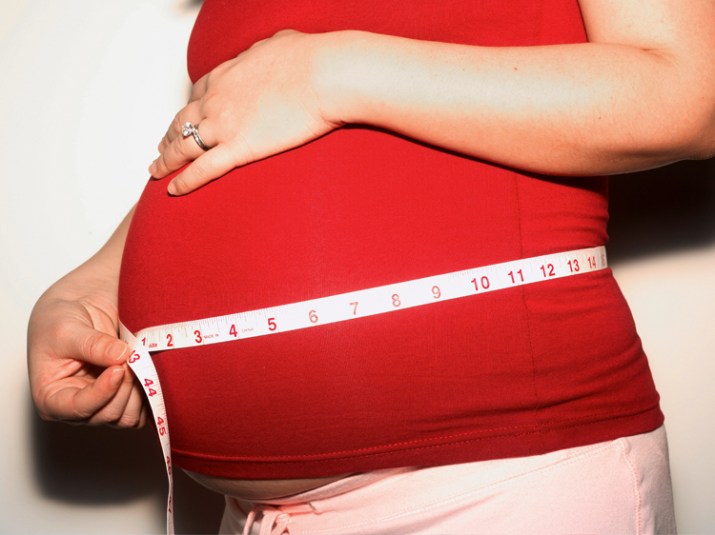Most Women Don’t Know How Much Weight Gain Is ‘Normal’ During Pregnancy

If you’ve ever heard the phrase “eating for two” in reference to pregnancy weight gain, you’re definitely not alone. It’s catchy, cute, and fun — who wouldn’t want an excuse to eat more food? But pregnancy weight gain is actually a lot more complicated than simply eating more than you usually do. Unfortunately, most women don’t get the right advice from doctors about how much weight they should actually gain while pregnant, according to a recent study.
The February 2018 article, published in the Journal of Women’s Health, found that only about 25 percent of women received appropriate advice from medical professionals about how much weight they should gain while expecting a baby. Another quarter of women did not receive any advice at all from their doctors about pregnancy weight gain. Considering how important the healthy weight gain is for both the mother and the baby during a pregnancy, it’s truly shocking that the majority of women are still not informed.
How much weight should you gain during pregnancy?
Every woman is different when it comes to her healthiest weight — and that includes her healthiest weight while she’s pregnant. But the Institute of Medicine recommendations of pregnancy weight agin are clearly specific to a woman’s pre-pregnancy body mass index (BMI) — weight in kilograms divided by height in meters.
According to the recommendations, an underweight woman with a BMI of less than 18.5 should gain between 28 and 40 pounds while pregnant. A pregnant woman with a normal weight and a BMI between 18.5 and 24.9 should gain between 25 and 35 pounds. An overweight woman with a BMI between 25 and 29.9 should gain between 15 and 20 pounds while expecting. Finally, an obese woman with a BMI more than 30 should gain between 11 and 20 pounds. How could some doctors not tell women these important numbers?
“This study […] highlights the importance of healthcare providers as a crucial source of guidance on appropriate weight gain during pregnancy, which is of utmost importance to maternal and fetal health,” said Susan G. Kornstein, MD, editor-in-chief of the Journal of Women’s Health, in a release. “It is essential that provider advice be consistent with the most up-to-date recommendations and best practices. These findings can be extrapolated beyond weight gain to other aspects of a healthy lifestyle that can impact pregnancy.”
We hope that doctors will heed this advice! In the meantime, be sure to pass along this info to any pregnant women you know. If they haven’t heard it yet, they definitely deserve to — for both themselves and their children.
More from FIRST
The Best Subscription Boxes for Mom That’ll Brighten Her Day
Pregnant Women on Low-Carb Diets More Likely to Have Babies With Birth Defects, Study Suggests
Would You Want to Find Out You’re Pregnant From Your Smartwatch?













